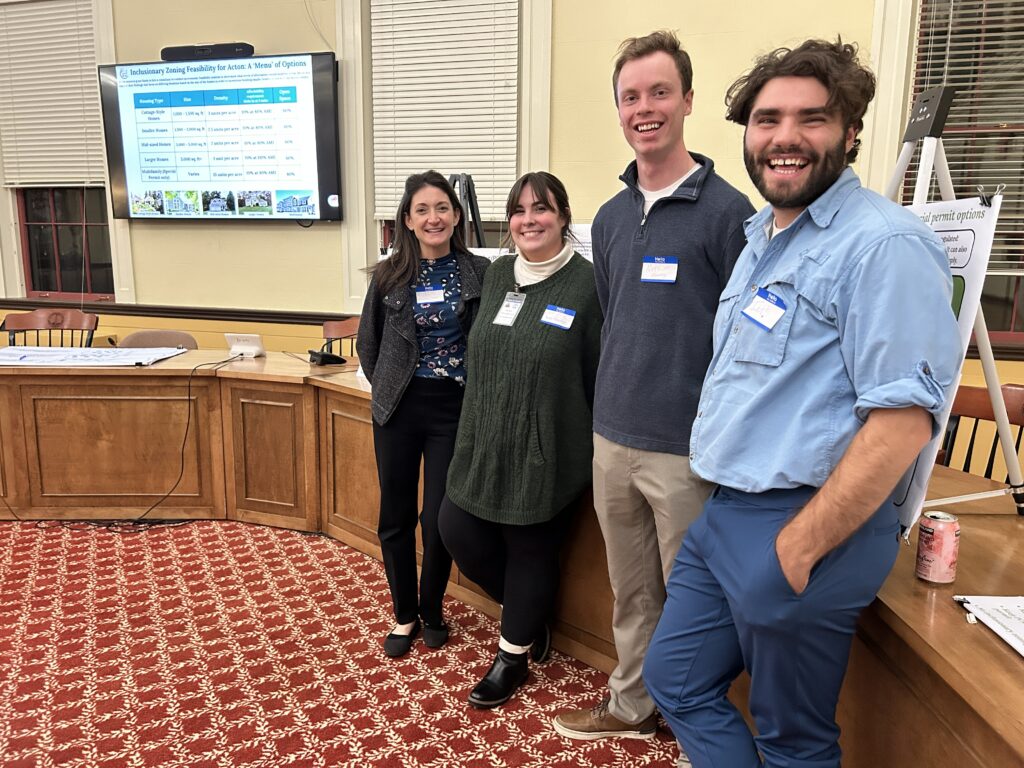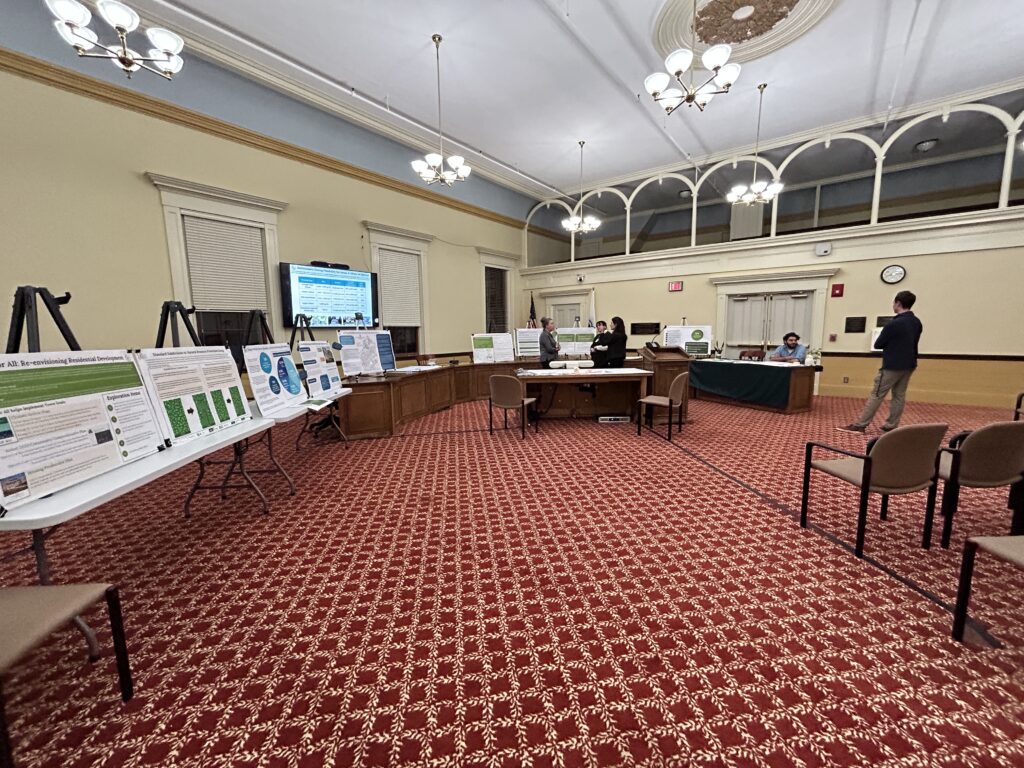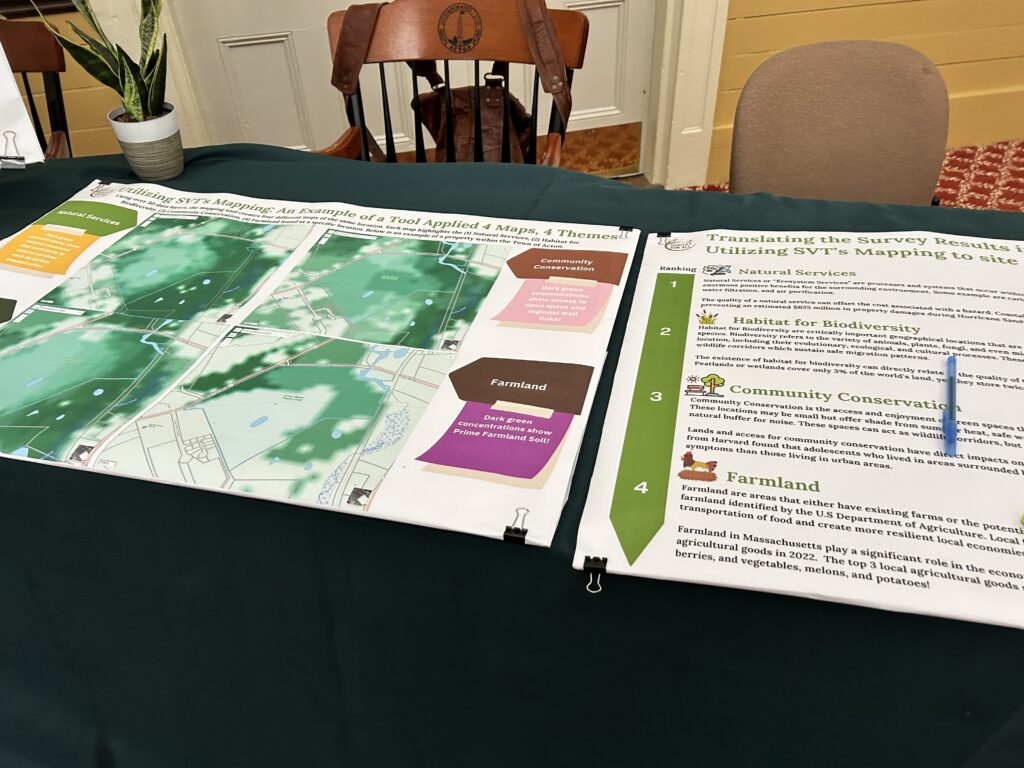In November the Acton Planning and Conservation Divisions, along with the Sustainability Office, held information sessions entitled, “Habitat for All.” This effort was funded by a state grant with the purpose of involving the community in finding better ways to combine the needs of natural resource protection and the creation of affordable housing with inclusionary zoning. In each of their several presentations the group had many colorful posters spread throughout the room telling the story of housing in Acton and offering some guidance as to how we might proceed. The headline of the first poster read: “Habitat for All, Re-envisioning Residential Development.”


Ideally Acton would have enough single-family housing, including the affordable kind, to meet demand while preserving open space. Several plans regarding land use are already in place, including the Climate Action Plan that protects natural resources while encouraging affordable and diverse net zero housing. The Acton 2020 Community Comprehensive Plan encourages broad biodiversity, soil preservation, and healthy local agriculture while supporting the financial ability of residents to remain in town, and the Housing Production Plan that advocates for housing clusters of market rate and affordable housing and preserving open space.
There are severalareasof interestin this exploratory study, including improving the current natural resource bylaw, improving the permit process to help preserve natural resources, incentivizing the building of smaller homes, and perhaps requiring developers to include moderate- and low-income housing in their plans.

In a standard subdivision there is currently no requirement for open space, and usually a developer fits as many homes on the property as allowed. In a natural resource protection zoning, the houses are clustered, leaving some portion of the development remaining as open space. Inclusionary zoning requires a builder to offer a certain number of homes to be deed restricted as affordable. Many times, this makes a proposed development financially unfeasible and can result in nothing being built. Sixty percent of communities that have adopted some form of inclusionary zoning have not had any affordable homes built due to the onerous requirements.
In 1990 the Affordable Housing Incentives and Overlay District passed by Town Meeting has only netted five affordable homes: four in Harris Village, and one in Half Moon Hill. The current natural resource protection zoning, named Planned Conservation Residential Community (PCRC), has had mixed results. A standard subdivision can be approved “by right” (meaning no special permit required) but a PCRC’s approval is discretionary, requires an eight-acre parcel, does not require determining the best way to preserve the natural resources on the site, and does not include inclusionary zoning. Partly because most properties are smaller than eight acres, PCRC’s have decreased from 56% of all developments in 1990-1999 (14 PCRC’s and 11 subdivisions) to only 16% in 2003-2024 (6 PCRC’s and 31 subdivisions).
There are two proposed options to remedy the inadequacy of the current regulations. Option one keeps subdivisions “by-right” while adding “by-right” developments that require natural resource protection with incentives for smaller housing and required inclusionary zoning. Option two removes the “by-right” designation for subdivisions and adds new standards for subdivisions that include natural resource protection, including, like option one, incentives for smaller houses but, unlike option one, inclusionary zoning would be optional.
Pat Clifford, a longtime town resident and member of the Planning Board said, “Inclusionary Zoning could present an alternative tool for land use planning in Acton. But, while its objectives sound laudable, whether or not Inclusionary Zoning can open a pathway to the kinds of housing we as a community want to see built should be carefully evaluated, perhaps as part of a master plan update.” Debate will continue to determine the best path forward with the goal of presenting an article at next May’s town meeting.
Questions can be directed to Planning (978-929-6631), Conservation (978-929-6634), or the Sustainability Office, Andrea Becerra (abecerra@actonma.gov).
Jeff Brown is the business beat reporter for the Acton Exchange.
